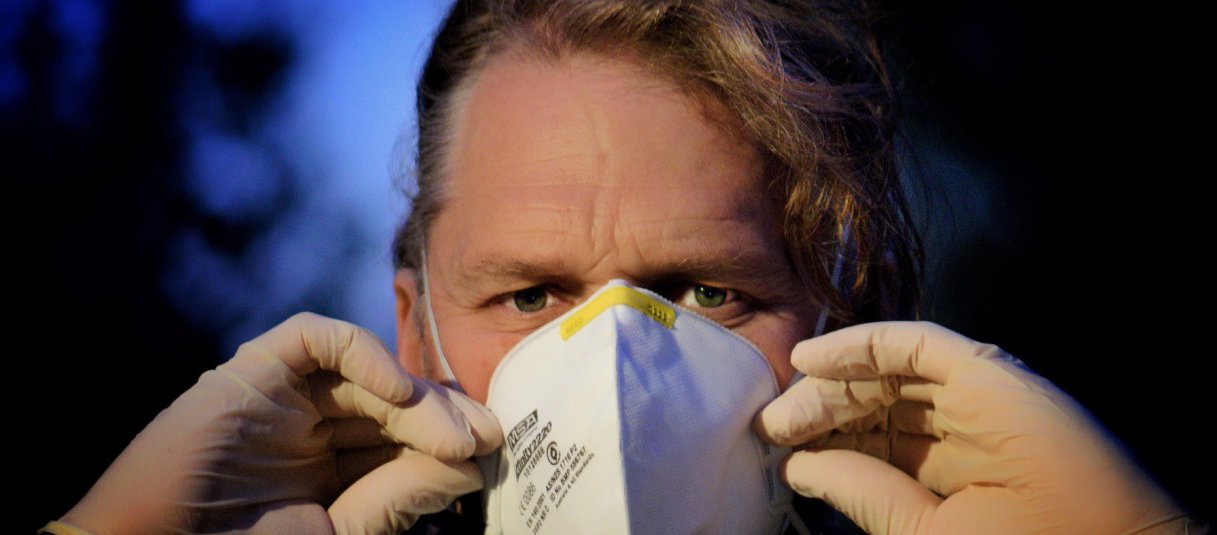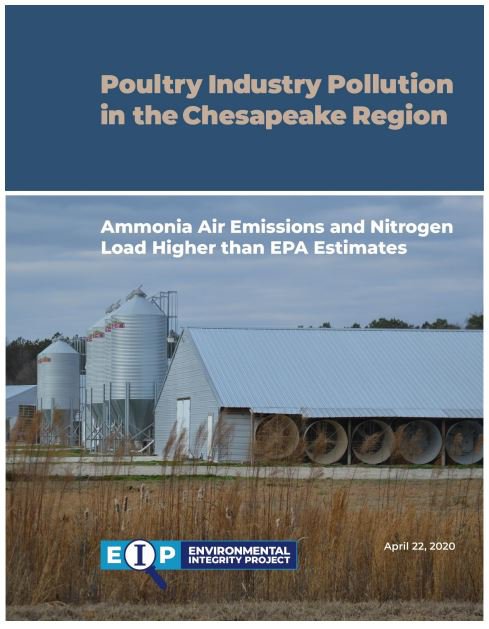
President Orders Continued Meat Production; And Then There's the 13th Amendment
Update: The president's order has issued. I now have doubt as to whether the Defense Production Act provides immunity to tort actions (if that was the plan) to parties bound by it outside the context of military contractors. See In Re Aircraft Crash Lit. Frederick, Md., 752 F. Supp. 1326, 1330 n.2 (S.D. Ohio 1990); see In Re Agent Orange Product Liability Litigation, 597 F. Supp. 740, 843 n.27 (E.D.N.Y. 1984). As we used to say back in my ice hockey days, this could be a donnybrook.
When I was a young whipper-snapper, an airline supervisor once ordered me to put my rain gear on and enter an airplane baggage compartment into which "lavatory fluid" had discharged due to a malfunction. I told him to pound sand. That memory popped into my head when I read that the president was ordering meat facilities to remain open (disclosure: I became a vegetarian in 1983 - how prescient of me). As Bloomberg reports (here behind a paywall):
President Donald Trump plans to order meat-processing plants to remain open, declaring them critical infrastructure as the nation confronts growing disruptions to the food supply, a person familiar with the …

No one really expected FEMA’s leadership of the coronavirus response to be inspiring or even, to put it bluntly, moderately competent. Still, I’ve been puzzled by several reports from state leaders and others that federal authorities have been confiscating purchased medical supplies without explanation or, at least in one case, compensation.
I don’t mean situations where a federal agency outbids someone or orders a vendor to sell to the federal government instead. That happens, too, and the practice is controversial. I’m talking about instances in which federal officials show up unannounced at a warehouse or a port and physically seize crates of medical gear that had been on their way to some needy hospital or test center that had paid or agreed to pay for them. The agent flashes a badge, the goods are trucked out, and no one knows where they go …

Tomorrow, April 28, is Workers' Memorial Day, a day the labor movement established to mourn workers killed on the job and to renew the fight for the living. This year, as the coronavirus pandemic grinds on, taking its toll on workers and their families, we’re reminded more than ever of how critical it is to guarantee all workers the right to a safe and healthy workplace.
Even before COVID-19, a typical day in the United States saw 14 workers killed on the job – hardworking people who set out for work, never to return home. In 2018, 5,250 workers – one worker every 100 minutes – died on the job. Black and Latinx workers were hit hardest in 2018, with a 16 percent increase from 2017 in black worker deaths and a 6 percent increase in Latinx worker deaths. As in years past, tens of thousands of additional …

Today, the Supreme Court ruled, 6-3, that the Clean Water Act requires a permit when a point source of pollution adds pollutants to navigable waters through groundwater, if this addition of pollutants is "the functional equivalent of a direct discharge" from the source into navigable waters. Because the U.S. Court of Appeals for the 9th Circuit applied a different legal test in determining that a permit was required for a sewage treatment facility operated by the County of Maui, the Supreme Court vacated the 9th Circuit's judgment and remanded the case for application of the standard announced today.
Perhaps the most striking feature of Justice Stephen Breyer's opinion for the majority – which drew the votes of Chief Justice John Roberts and …

On Earth Day, the Environmental Integrity Project (EIP), a CPR ally, released a new report on nitrogen pollution from poultry operations in the Chesapeake Bay watershed. Using data from the Chesapeake Bay Program’s pollution modeling program, EIP found that approximately 24 million pounds of nitrogen pollution from the poultry industry entered the Chesapeake Bay’s tidal waters in 2018. This amount is greater than the total nitrogen from urban and suburban stormwater runoff in Maryland and Virginia combined (20 million pounds in 2018). All that nitrogen pollution can contaminate drinking water sources of nearby communities and feeds huge algal blooms in the Bay that block sunlight, choking off fish and plant life.
Nearly two-thirds of the poultry industry’s nitrogen pollution comes from broiler farms that raise chickens for meat. The Delmarva Peninsula — including Dorchester, Somerset, and Wicomico counties in Maryland (which have 220 registered poultry …

Editor's Note: With COVID-19 cases contracted at work on the rise, labor and employment attorneys, businesses, advocates, and workers are all wondering if their state’s workers’ compensation law will apply, and alternatively, if an ill worker could file a lawsuit against their employer. The answers to these questions are not simple, as workers’ compensation laws vary by state, and when it comes to occupational diseases, the applicability of workers’ comp is often even more complicated.
In a recent post on Workers’ Compensation Law Prof Blog, CPR Member Scholar Michael Duff discusses the so-called workers’ compensation “grand bargain,” under which workers receive no-fault benefits for work-related injuries and illnesses in exchange for giving up their right to file a lawsuit against their employer. In his post, Duff explores the circumstances in which a worker who has contracted COVID-19 at work may still have the right to file …

On April 17, CPR Board President Rob Verchick joined EPA enforcement chief Susan Bodine and other panelists for an American Bar Association webinar on environmental protections and enforcement during the COVID-19 pandemic. During the event, Bodine expressed "surprise" that the agency's pandemic enforcement policy was so roundly criticized, but she shouldn't have been caught off guard by those critiques.
As Verchick noted during the discussion, "The problem with [weakening monitoring and pollution reporting requirements] is that fenceline communities have no idea where to look. They have no idea if the facilities in their backyards are…taking a holiday from pollution requirements or not."
Verchick added, "Companies don't know what their competitors are doing, and so now you've got companies who might be thinking, oh, well, my competing facilities, maybe they're taking advantage of this and I must, too, because nobody knows who's taking advantage …

As the coronavirus pandemic wears on, reports abound of essential frontline workers laboring without such basic protective gear as masks, gloves, soap, or water; with improper distancing between workstations and coworkers; and in workplaces alongside infected colleagues. So far, nearly 4,000 workers have filed complaints with the federal Occupational Safety and Health Administration (OSHA), raising concerns about health and safety conditions inside the workplace. Yet the agency has been largely absent at a time it is most needed.
Shamefully, as COVID-19 illnesses rise in slaughterhouses, grocery stores, hospitals, and other worksites across the nation, the agency has chosen to go against its very mission of protecting America’s workers, ignoring calls to adopt emergency standards and rolling back its enforcement efforts.
Since early March, unions, advocates, and workers have called on OSHA to take immediate action to adopt an emergency temporary standard and subsequent permanent standard …

During the coronavirus crisis, Dr. Anthony Fauci has become the voice of reason. Much of the public turns to him for critical information about public health while even President Trump finds it necessary to listen. In the Trump era, no one plays that role in the environmental arena. The result is a mindless campaign of deregulation that imperils public health and safety.
We can't clone Dr. Fauci or duplicate the unique circumstances that have made his voice so powerful. However, we can do several things that would make it harder for administrations to ignore science:
- Congress needs to greatly strengthen laws protecting whistleblowers, which currently are much weaker than most people realize.
- Congress also needs to codify into law the existing rules protecting scientific integrity within administrative agencies. Currently there are merely internal regulations that agencies can ignore.
- Either …

Every four years, as presidential elections draw near, the political appointees driving the incumbent administration's regulatory agenda put their feet on the gas, working to cover as much ground as they can before their boss's term is up. It makes no difference whether the current White House occupant is running for reelection or heading off into presidential library-land; they all want to get as much done while they control the steering wheel.
The one thing that usually constrains them, particularly first-termers, is the politics of the moment. Candidates for reelection aren't interested in seeing their agencies promulgate rules that will inflame opposition, and retiring presidents worry a lot about their legacy and aren't so eager to tarnish it with firestorm-inducing midnight regulations. That, at least, has been the norm. But as with so many other things about the Trump administration, standard rules don't apply. And so, we're …








